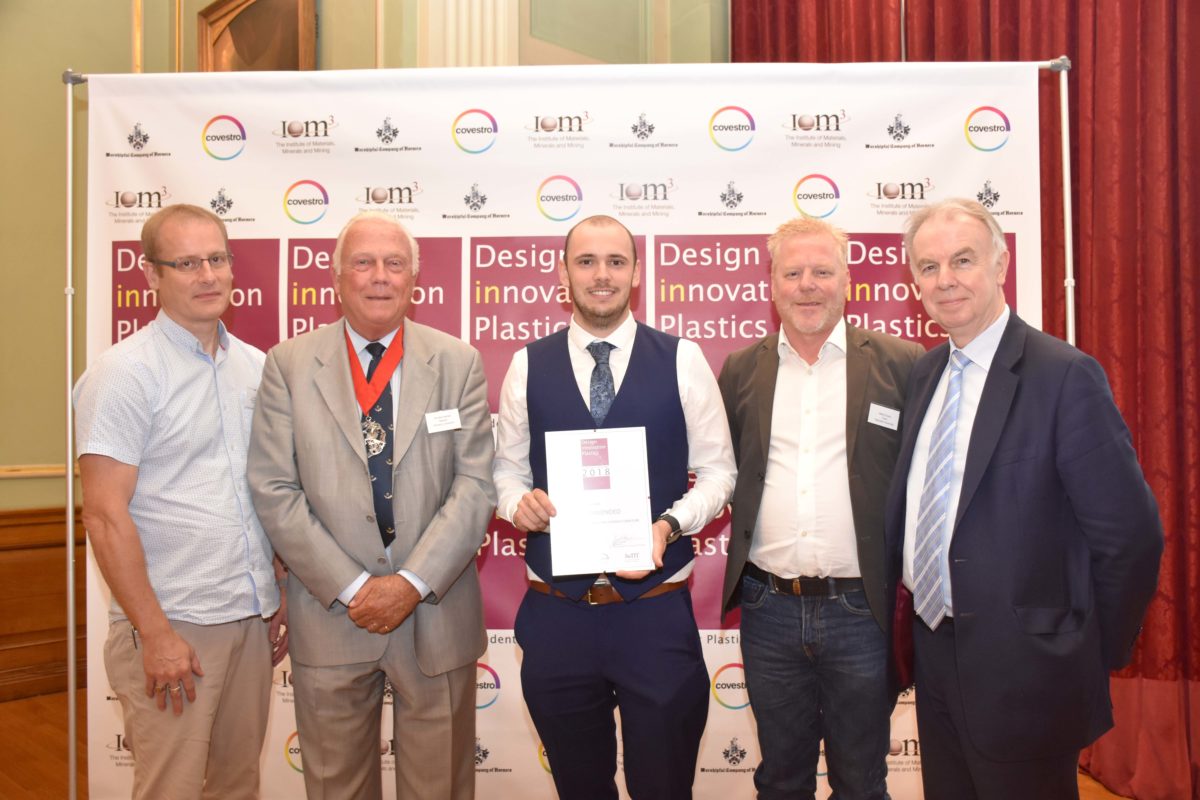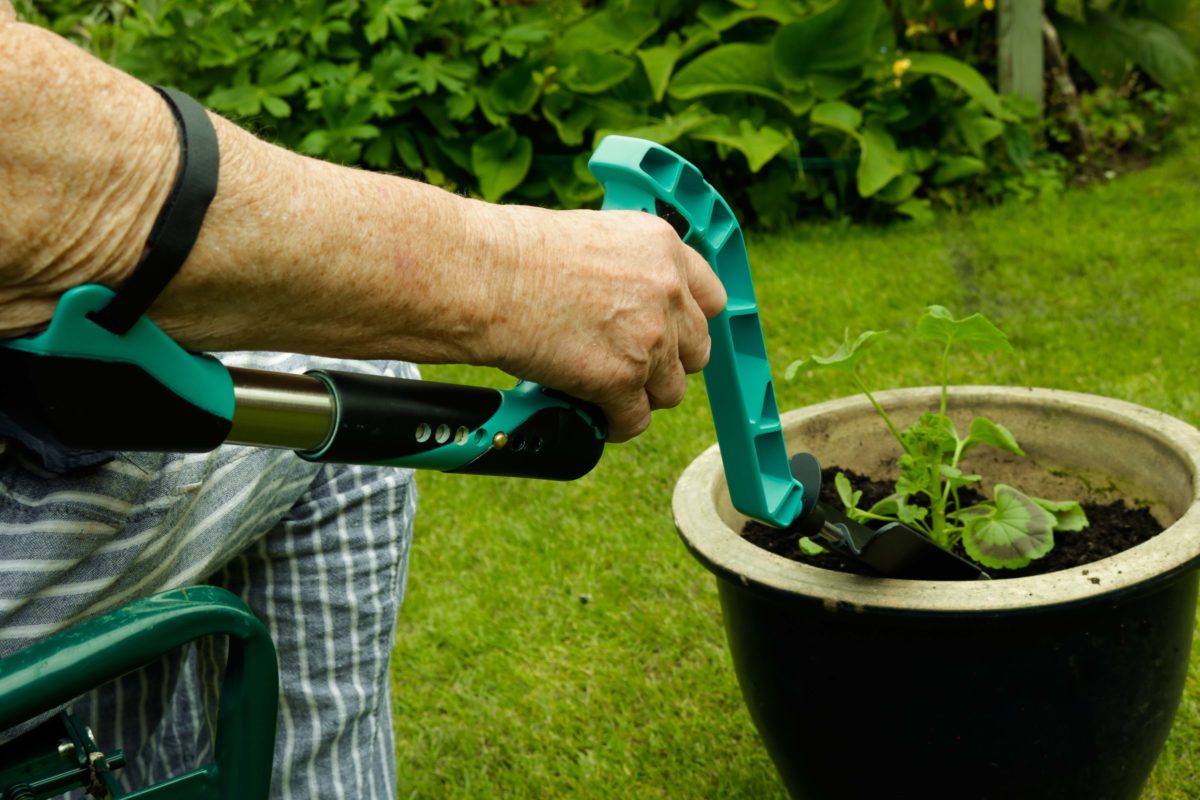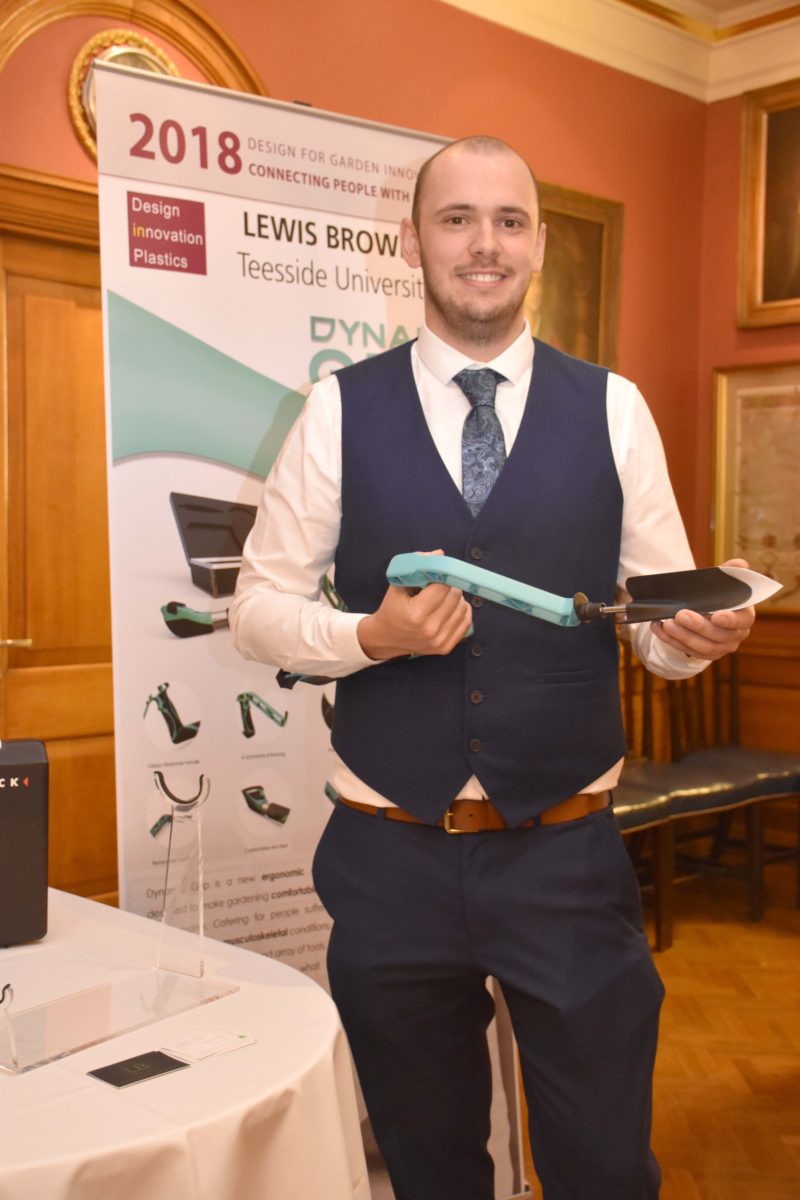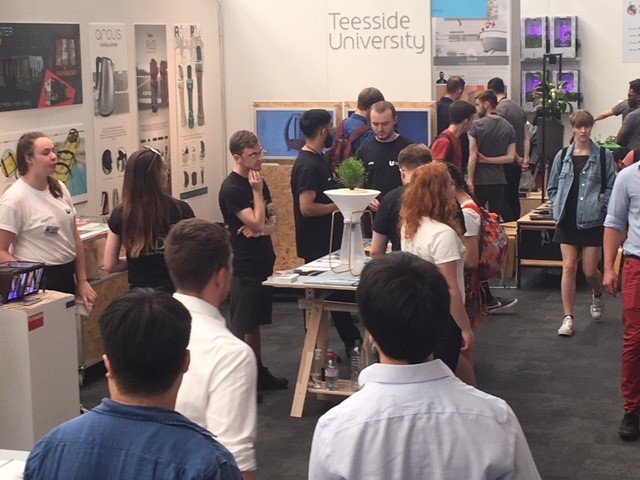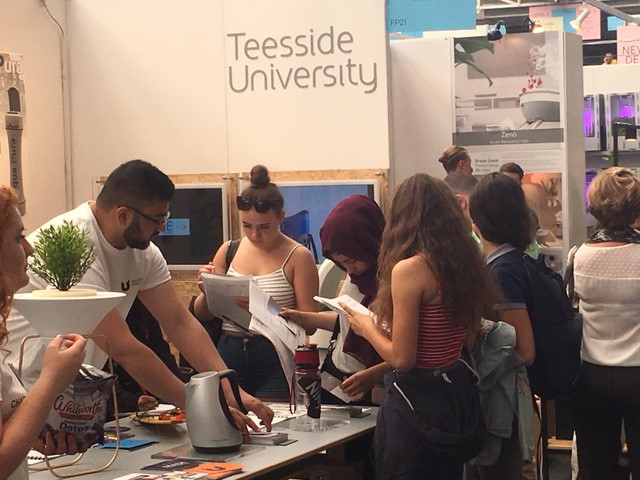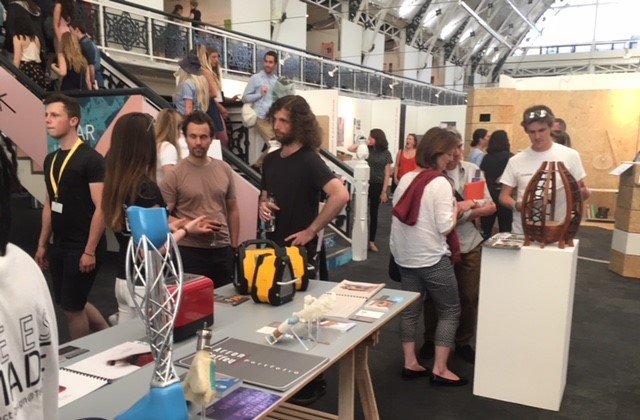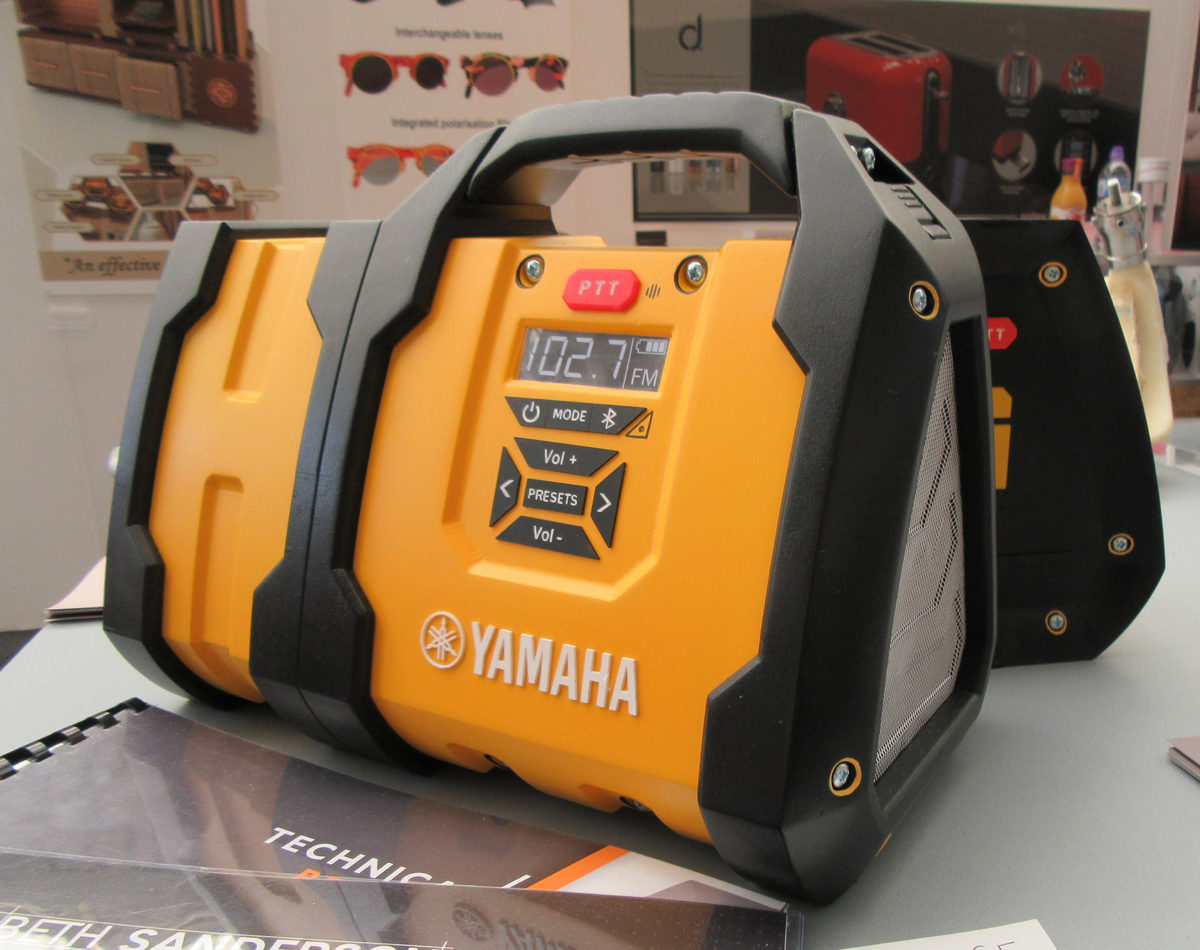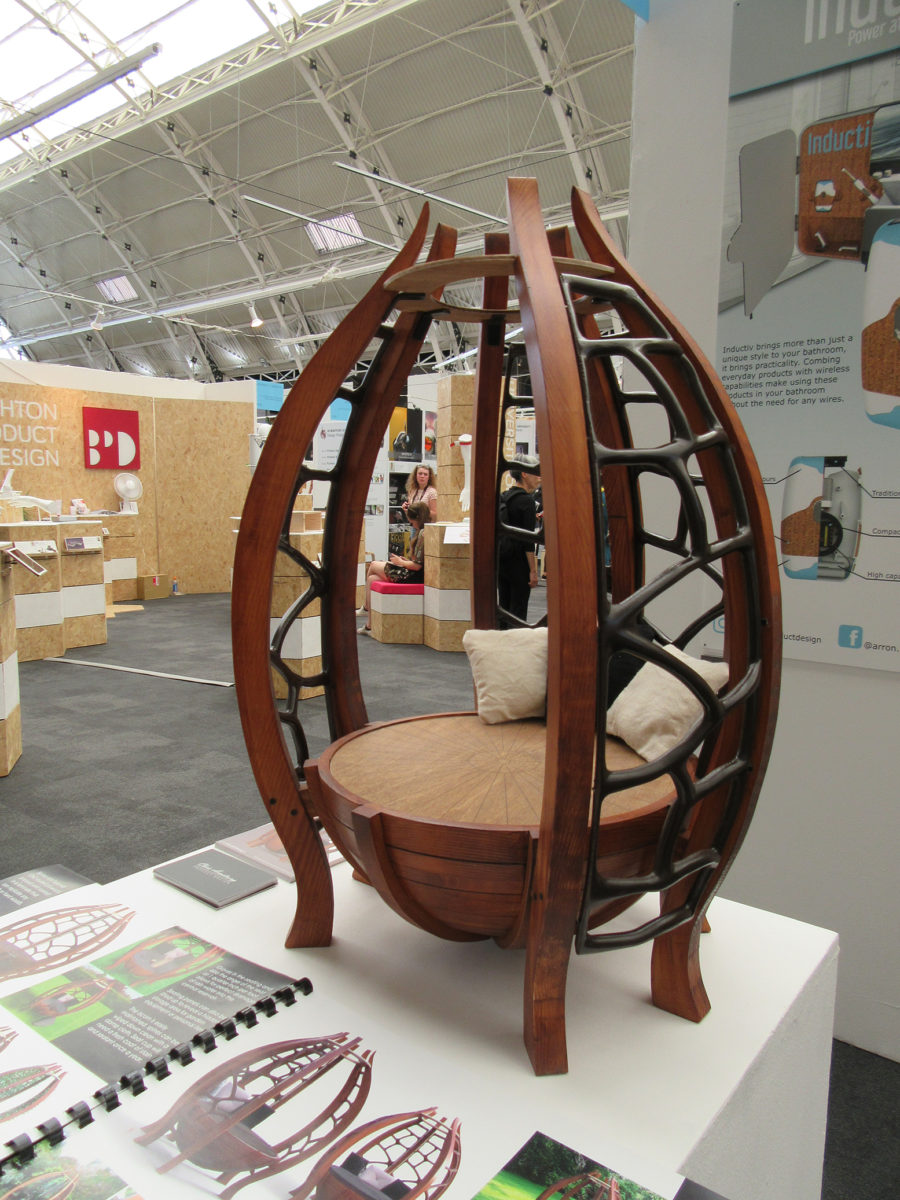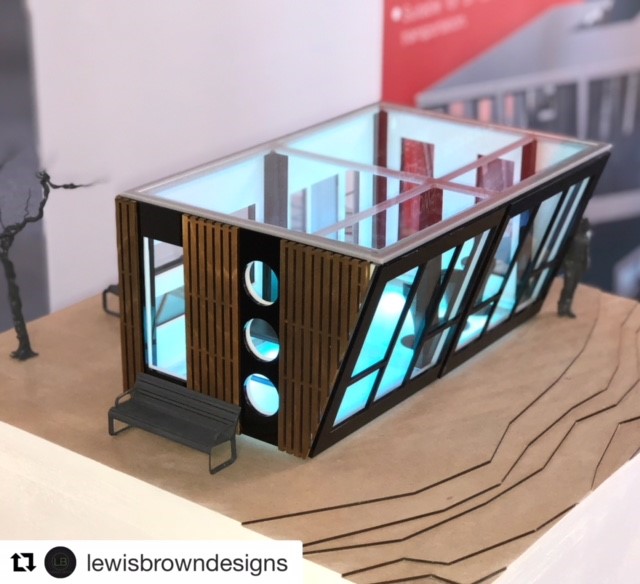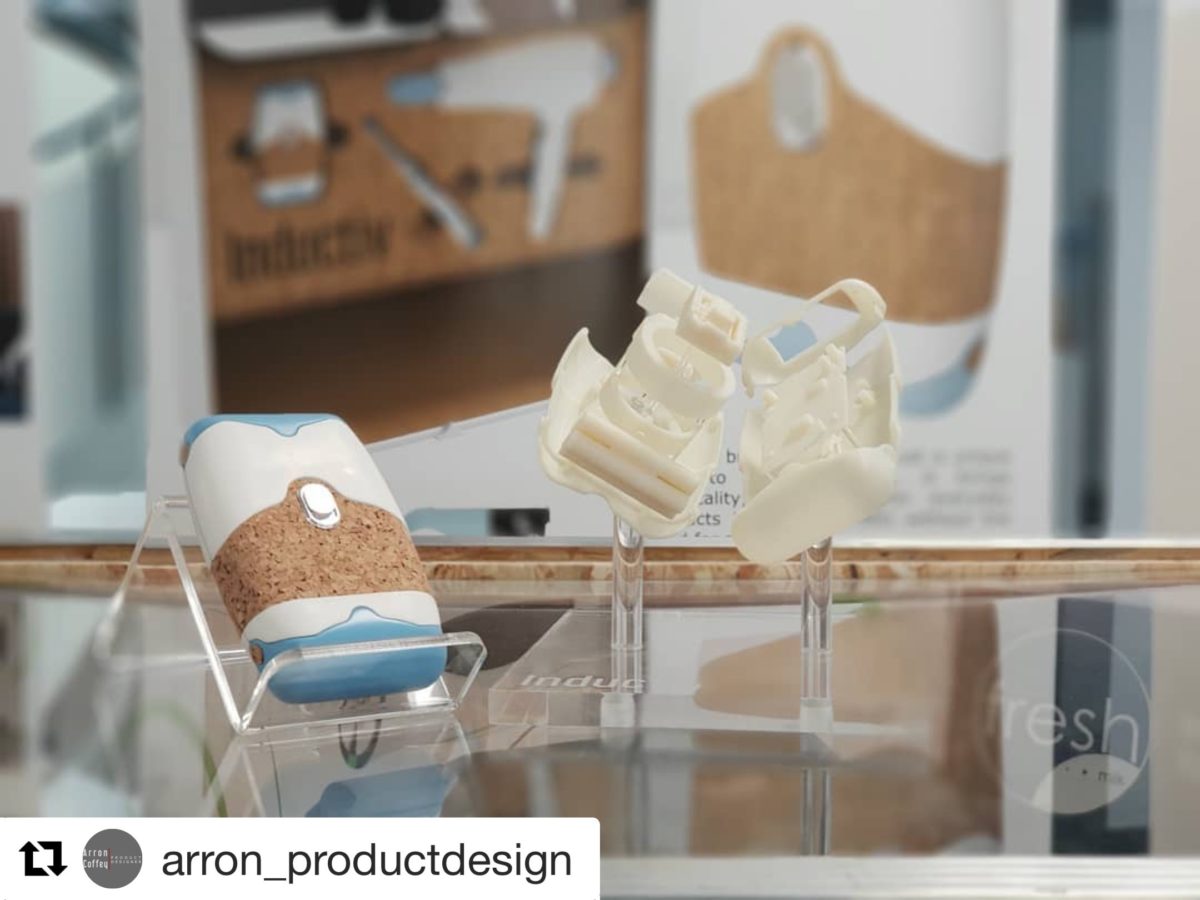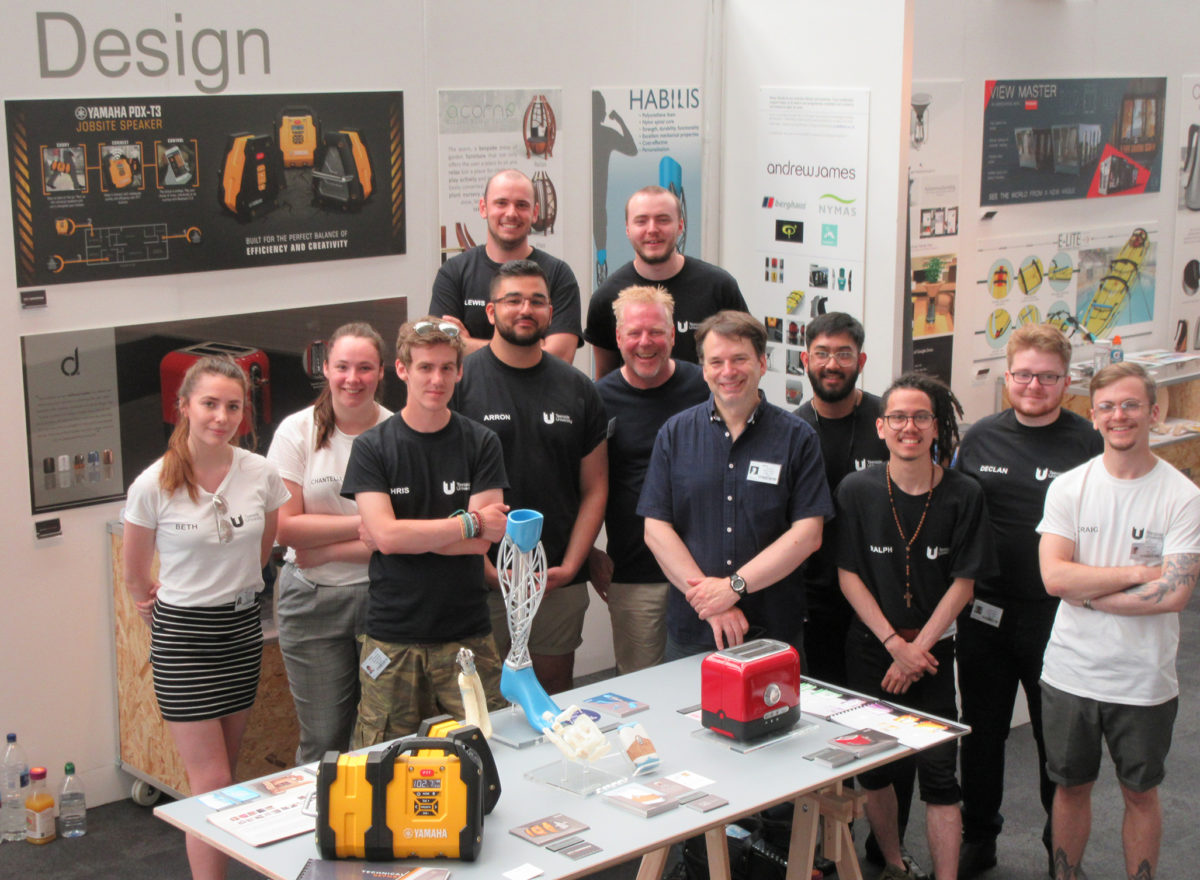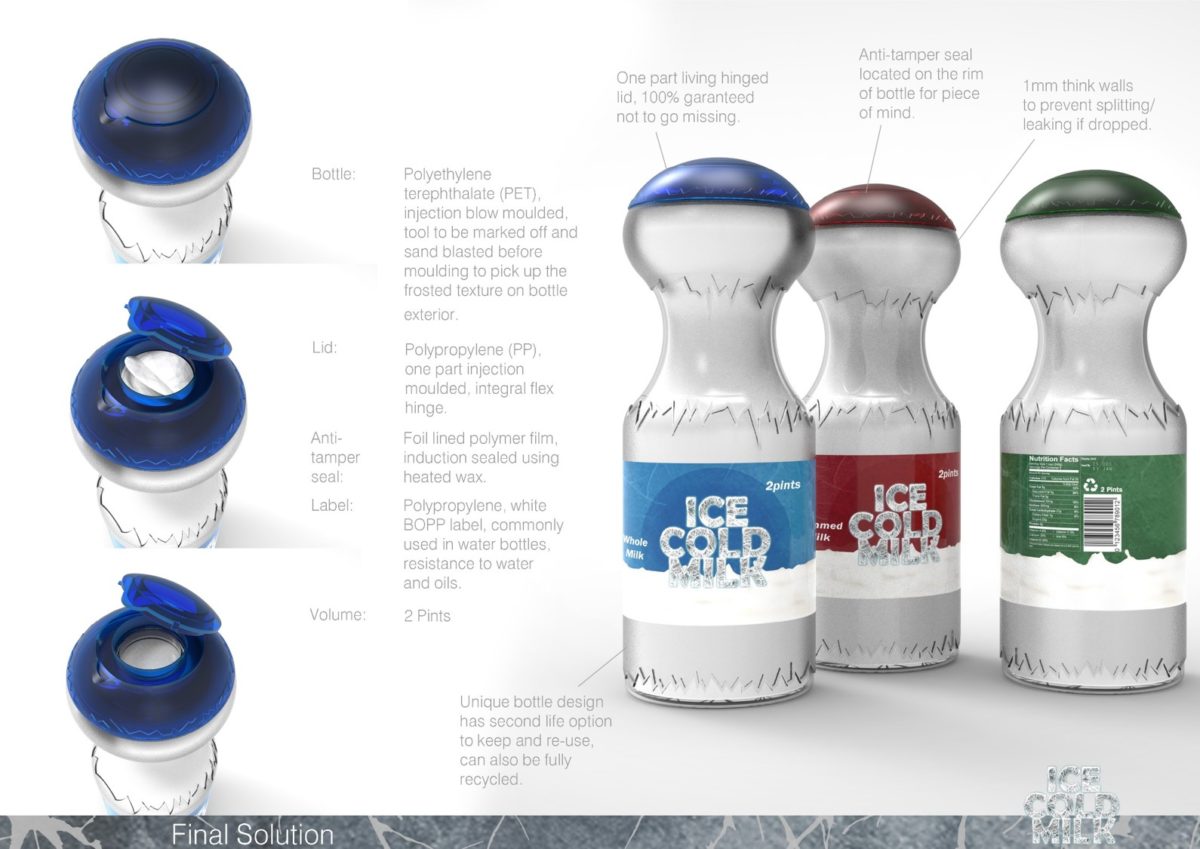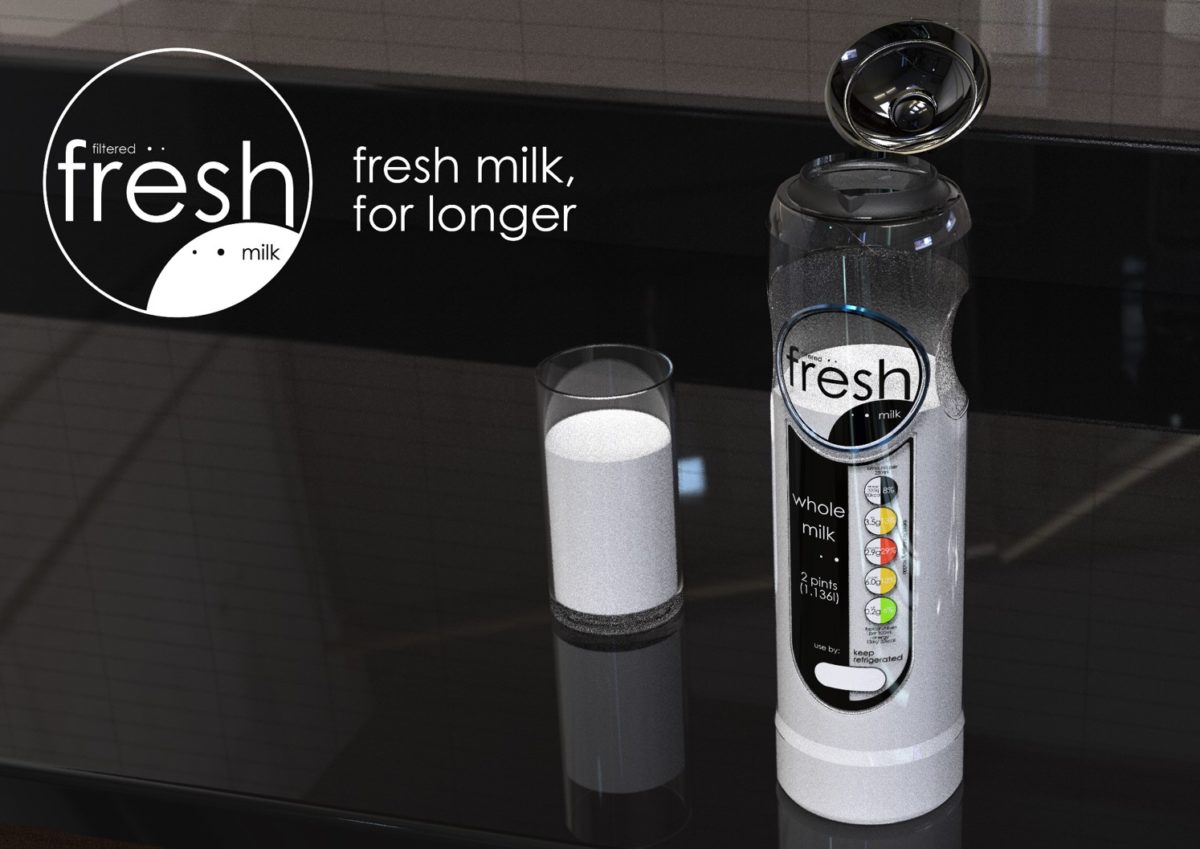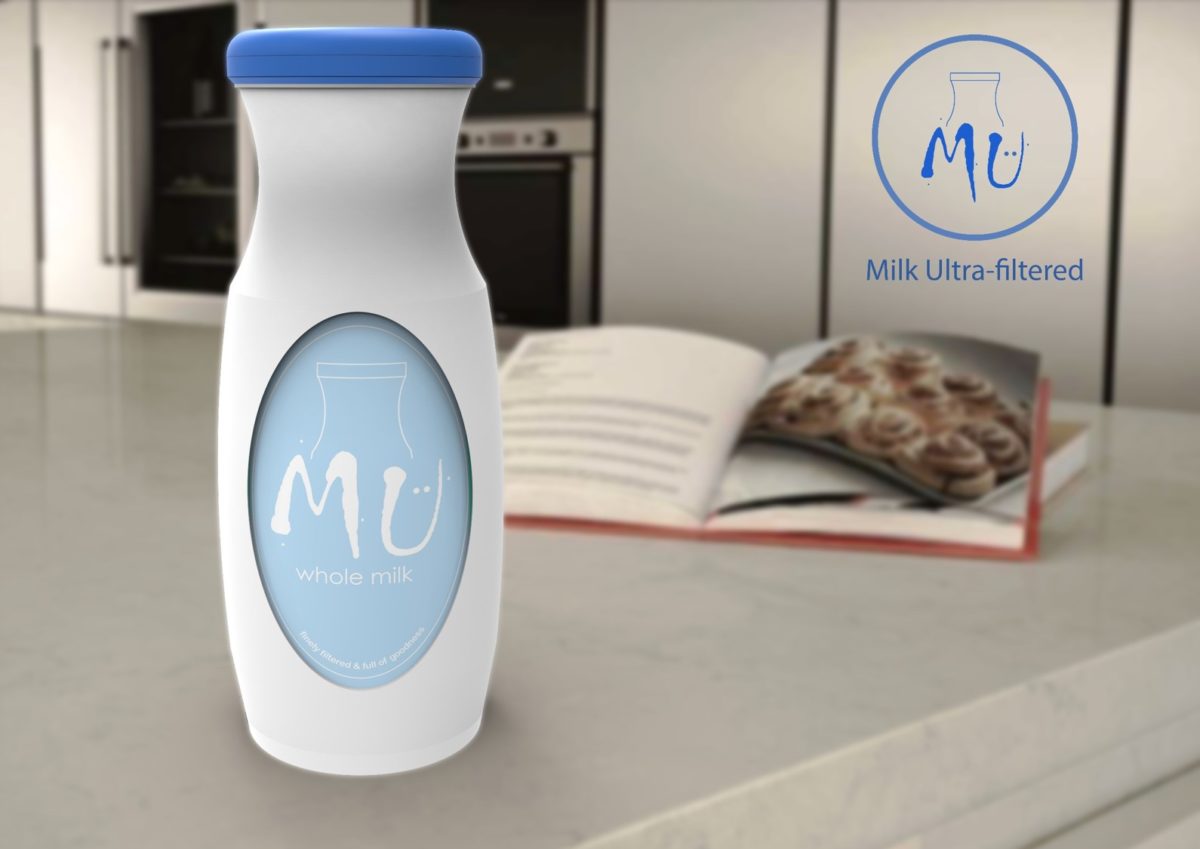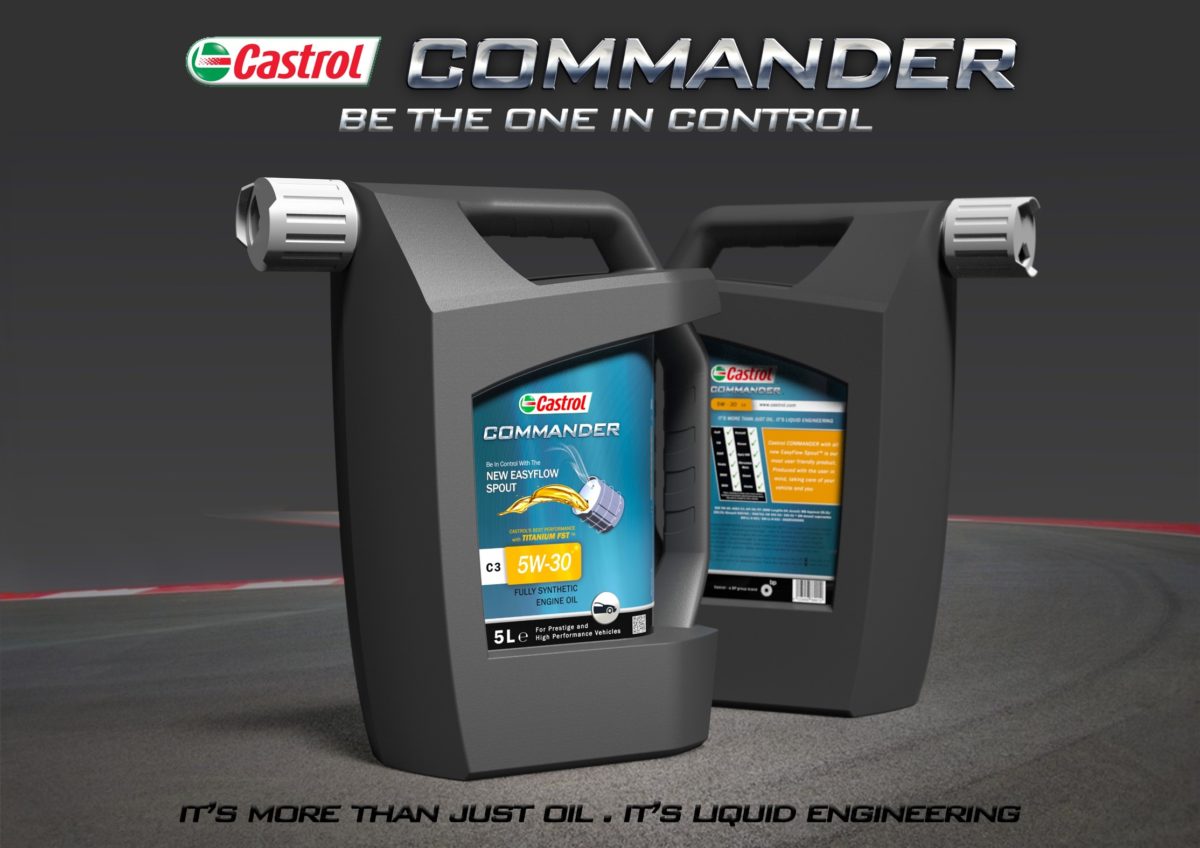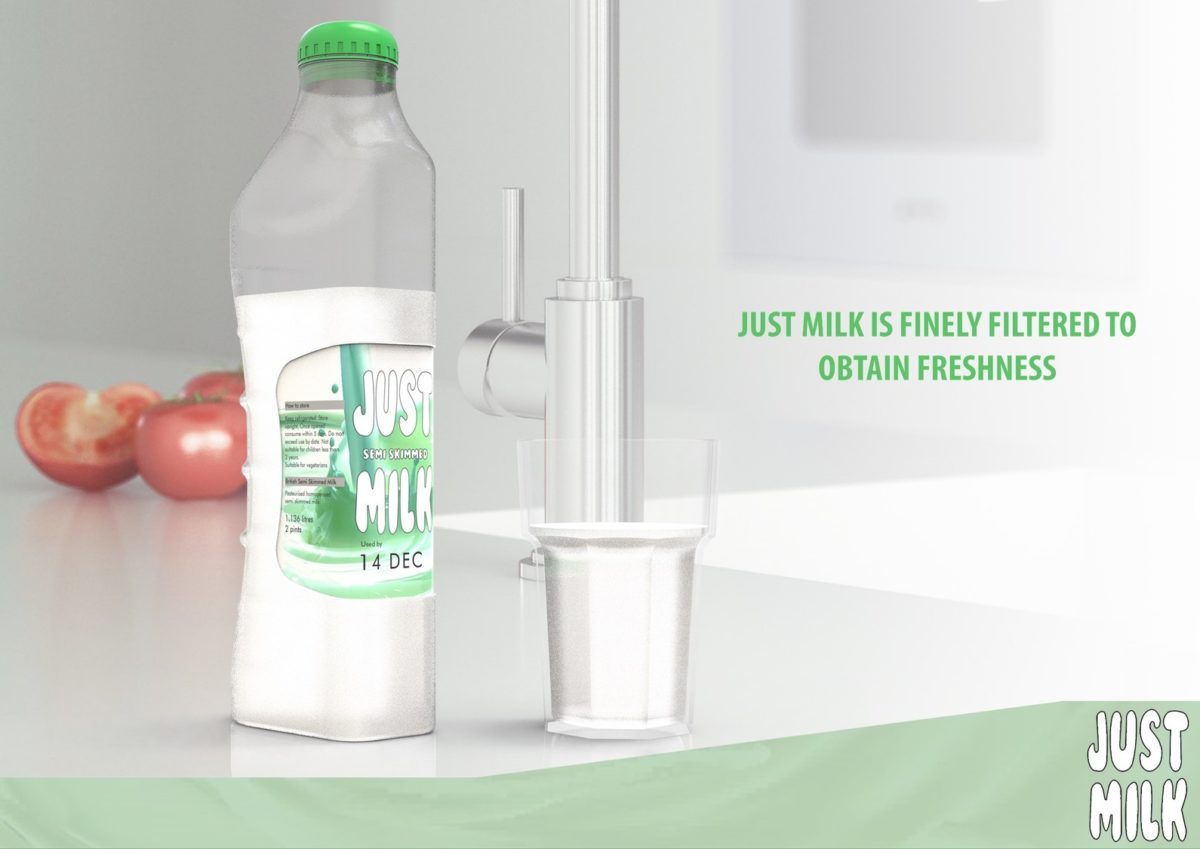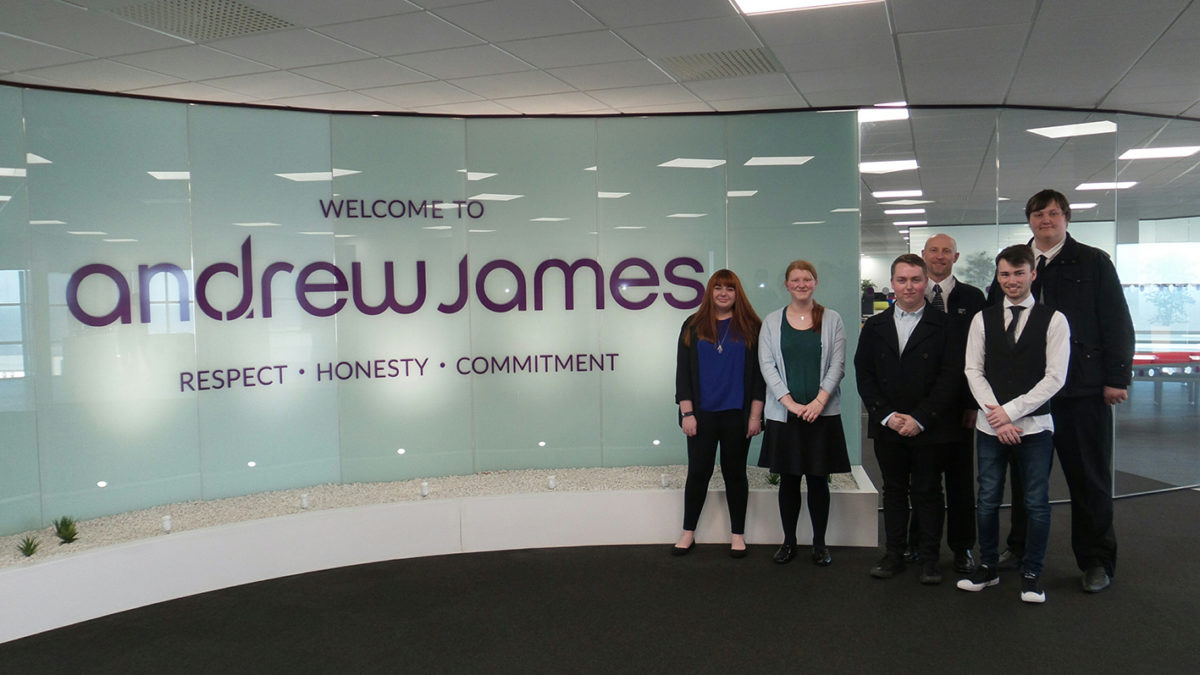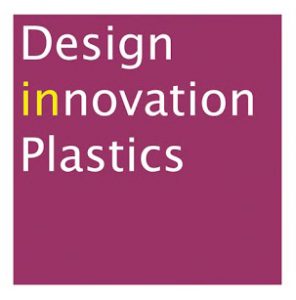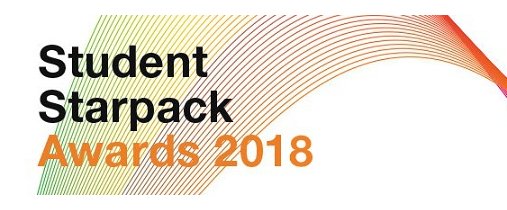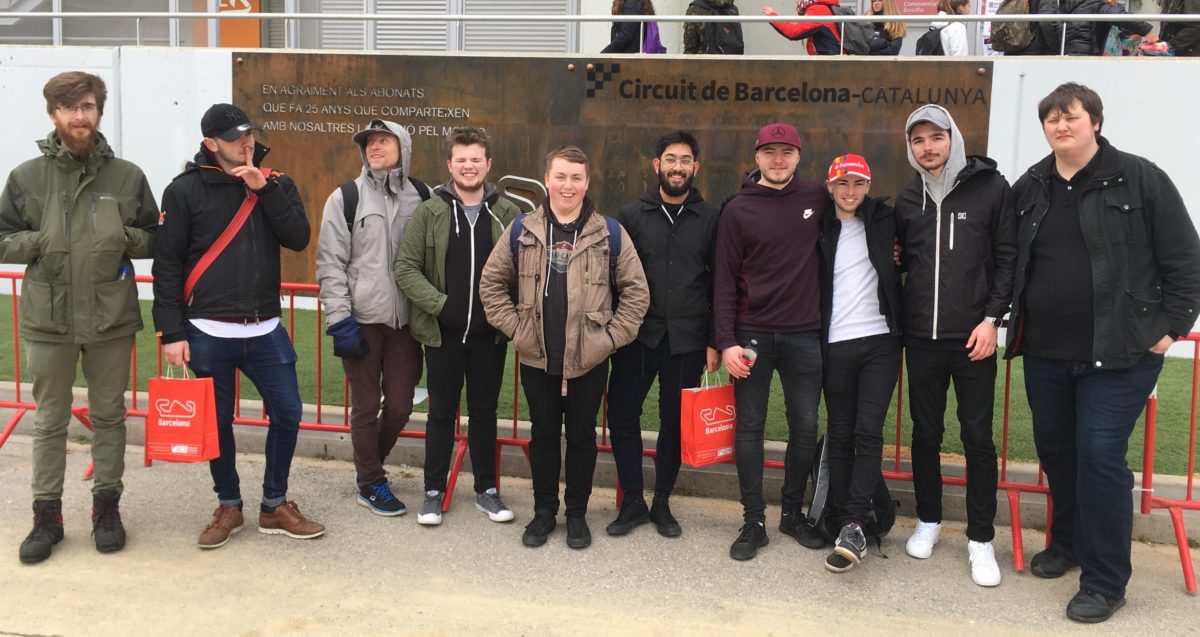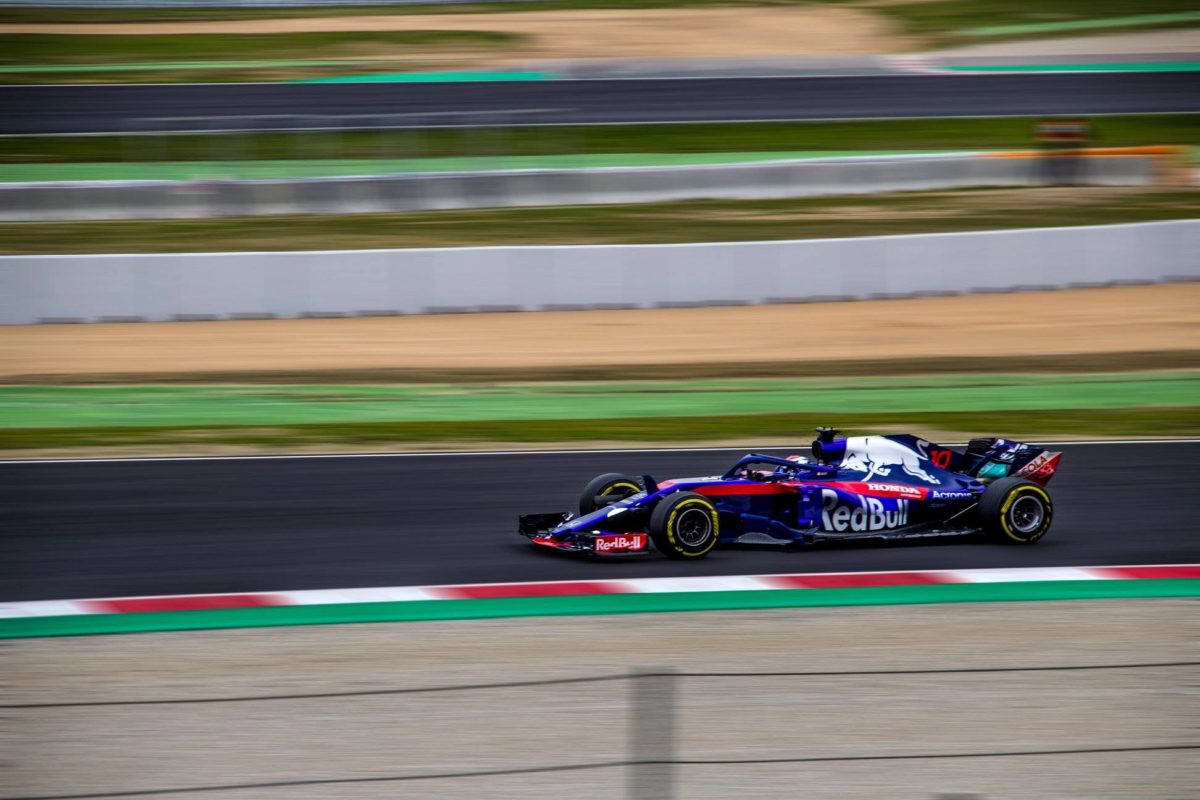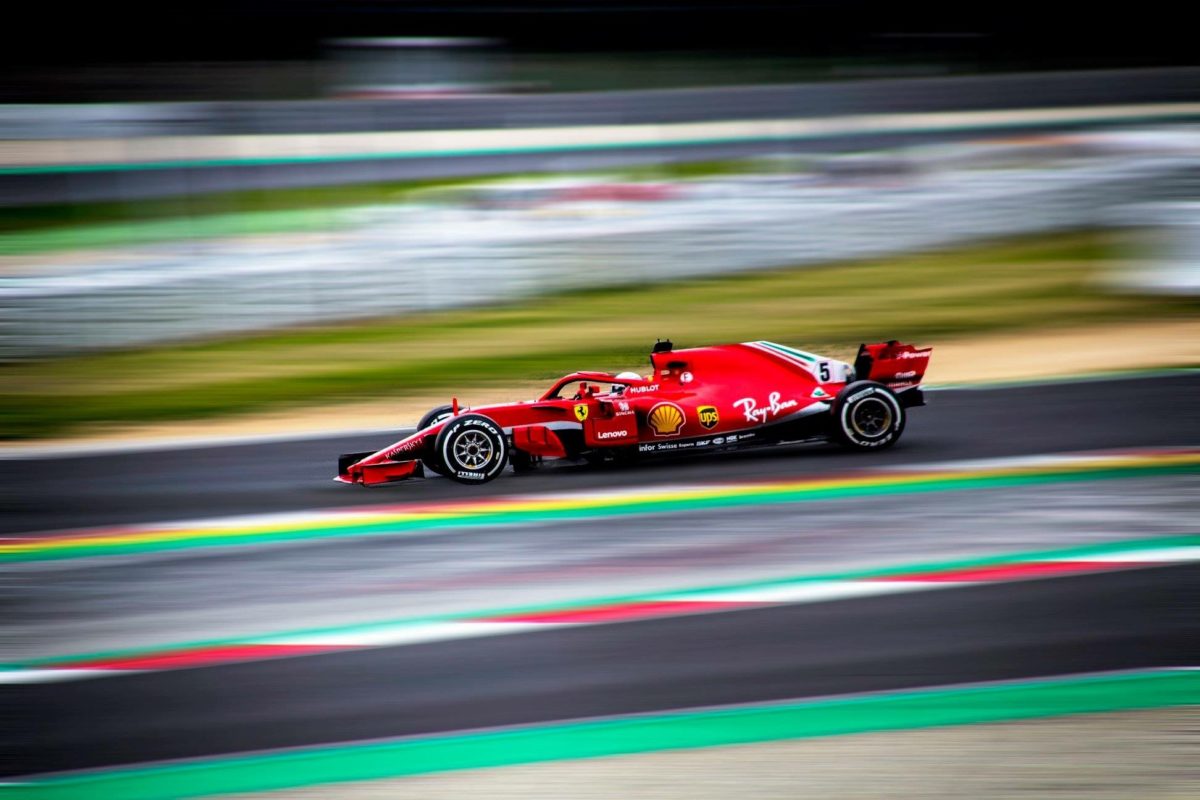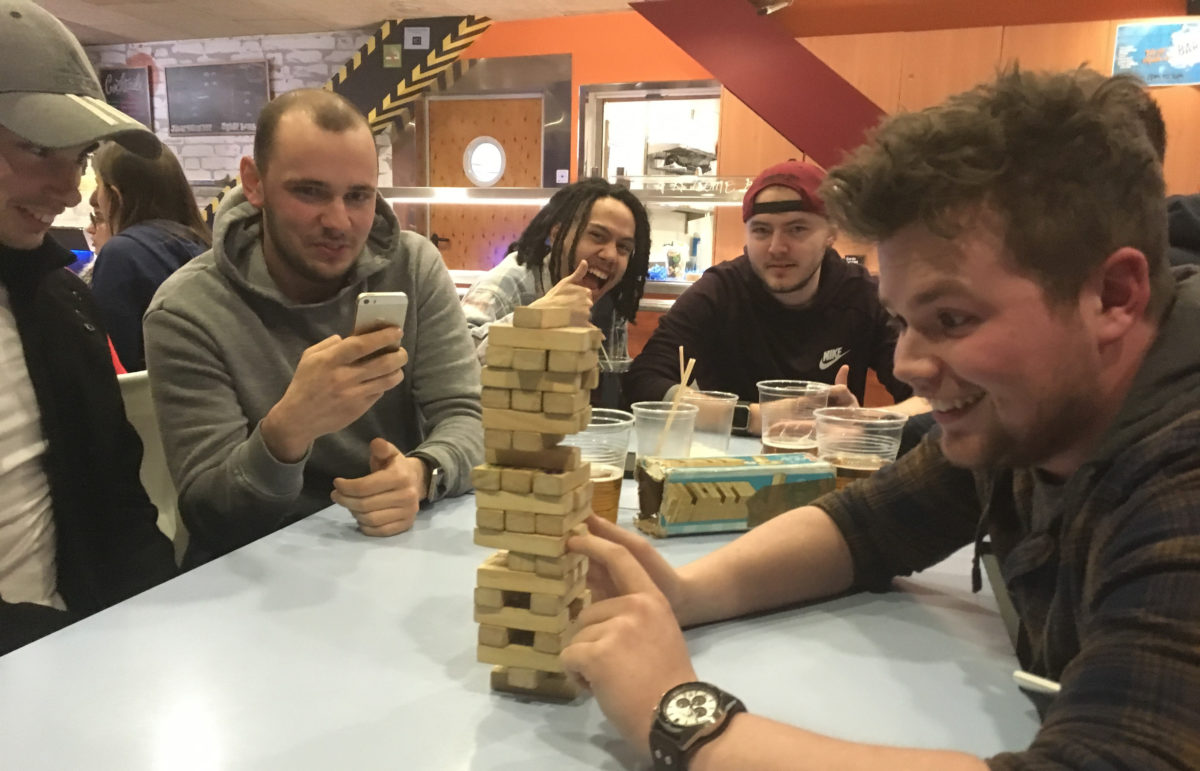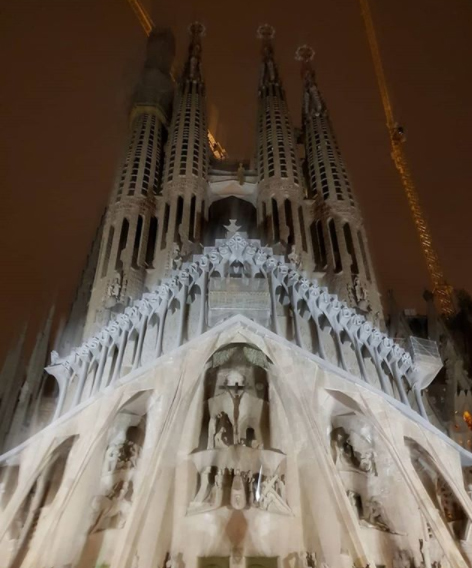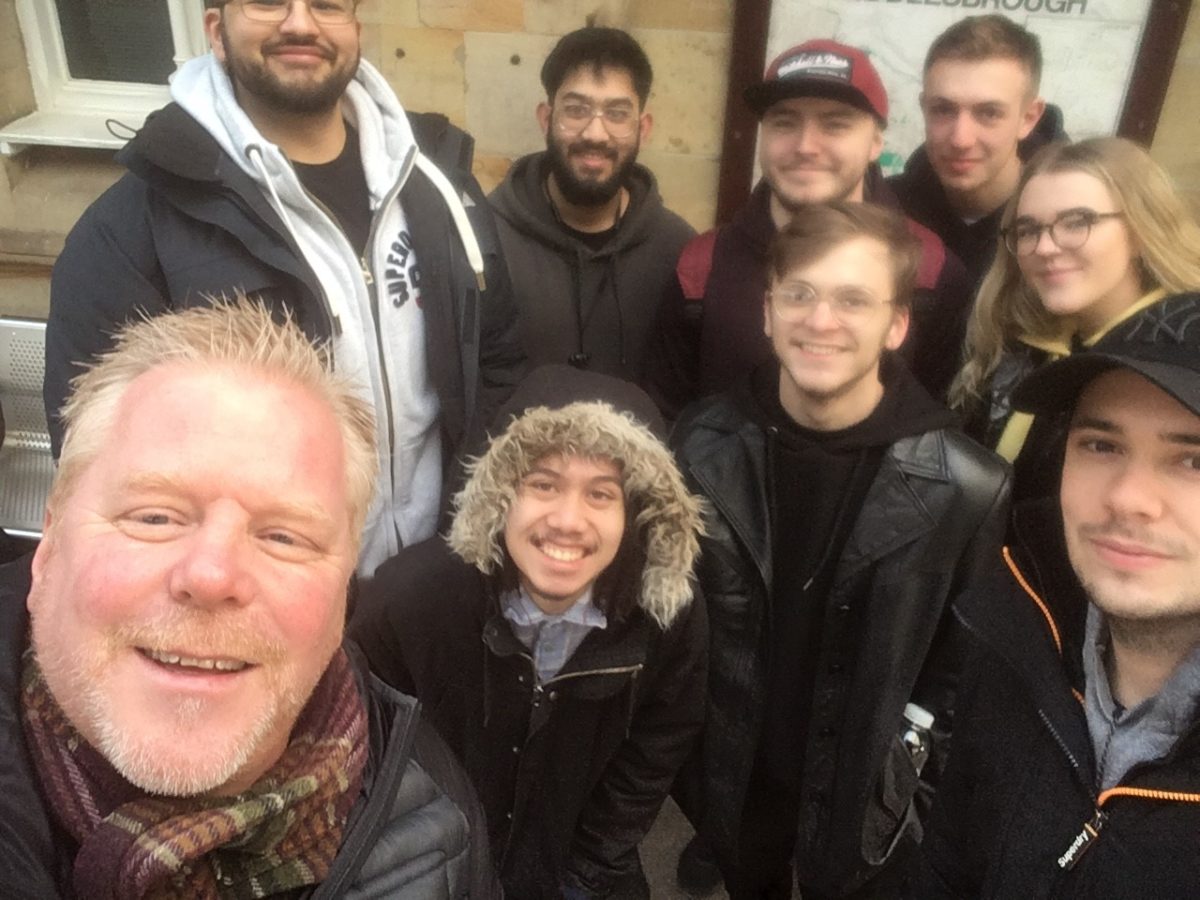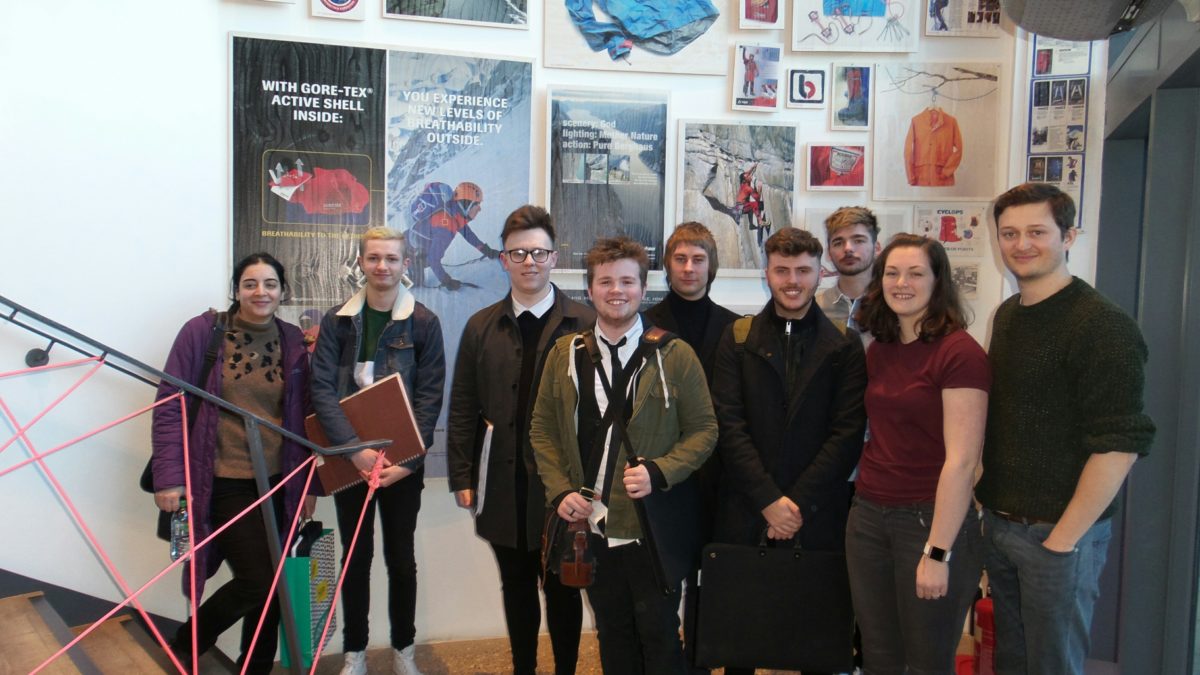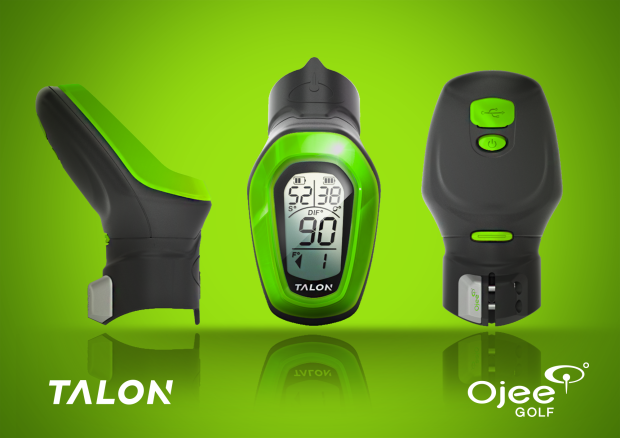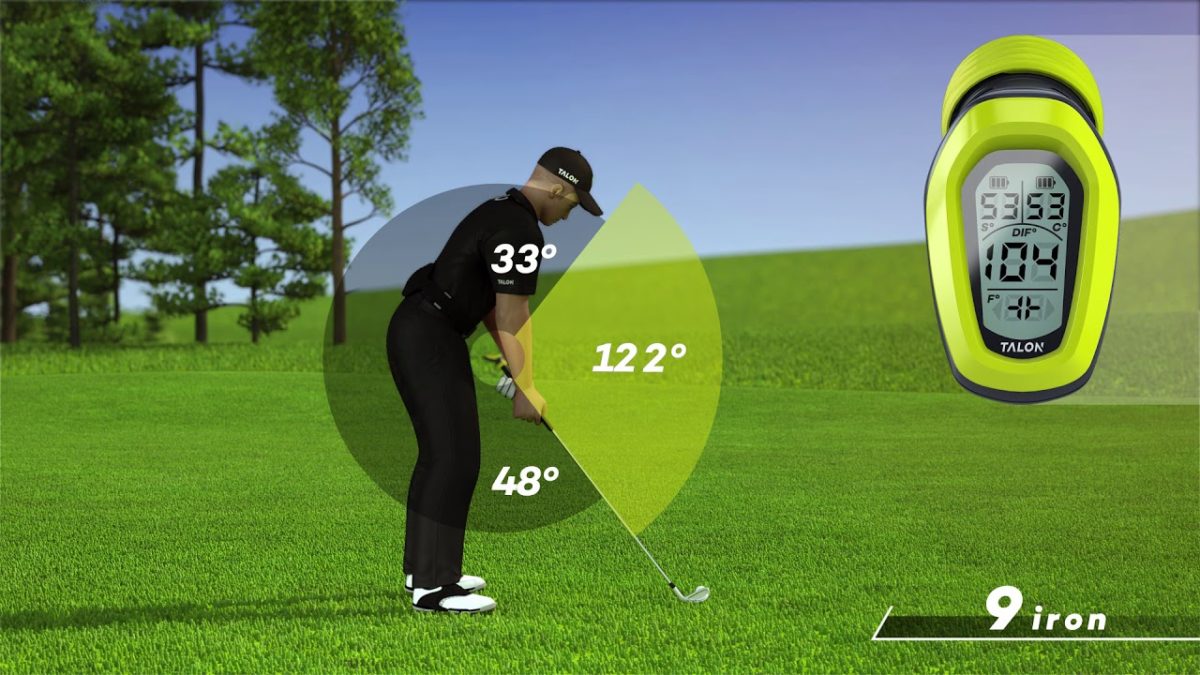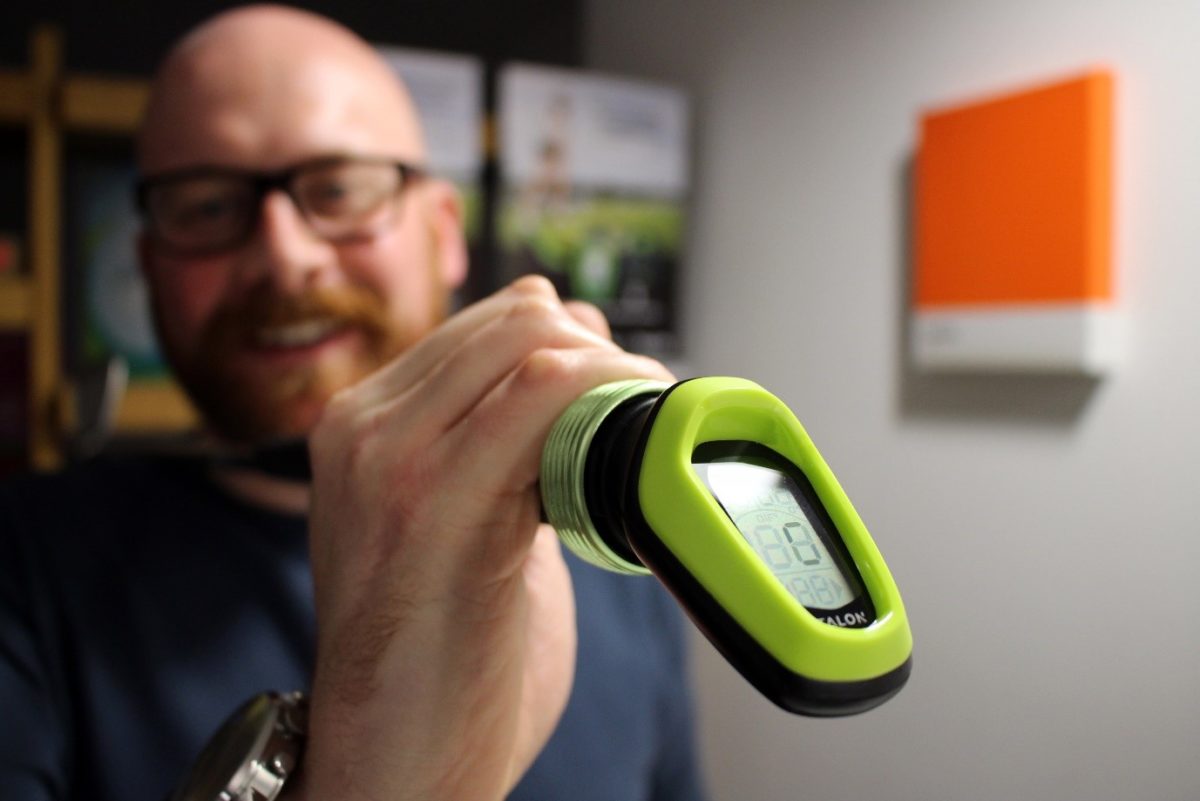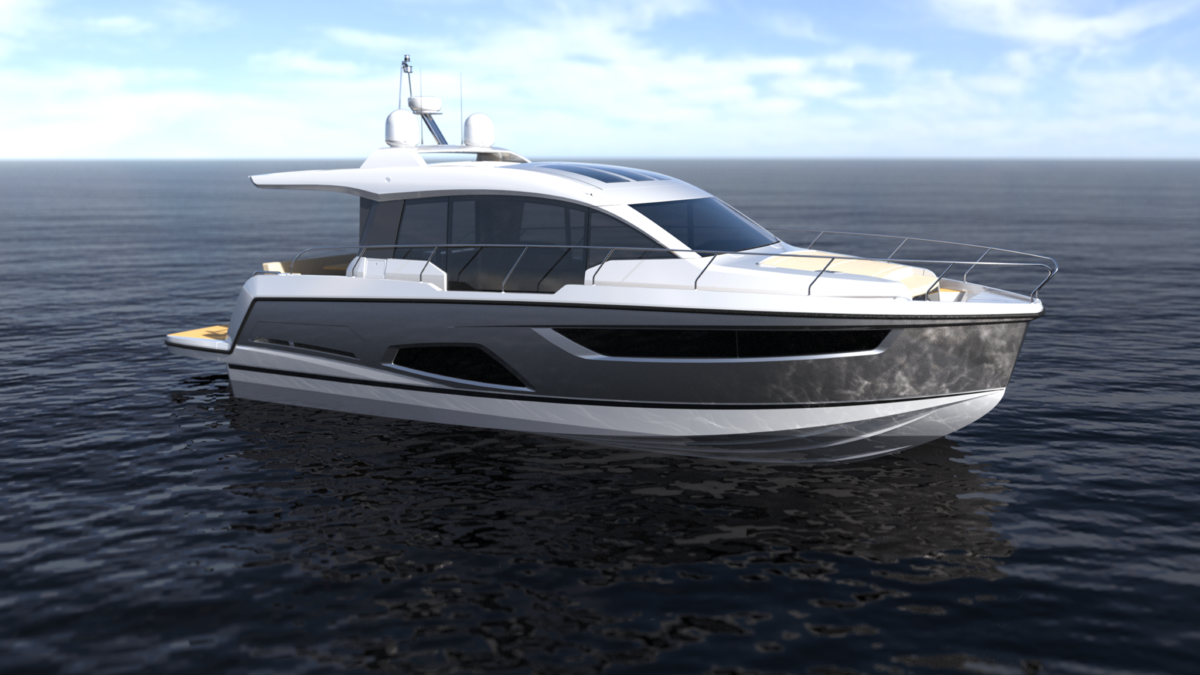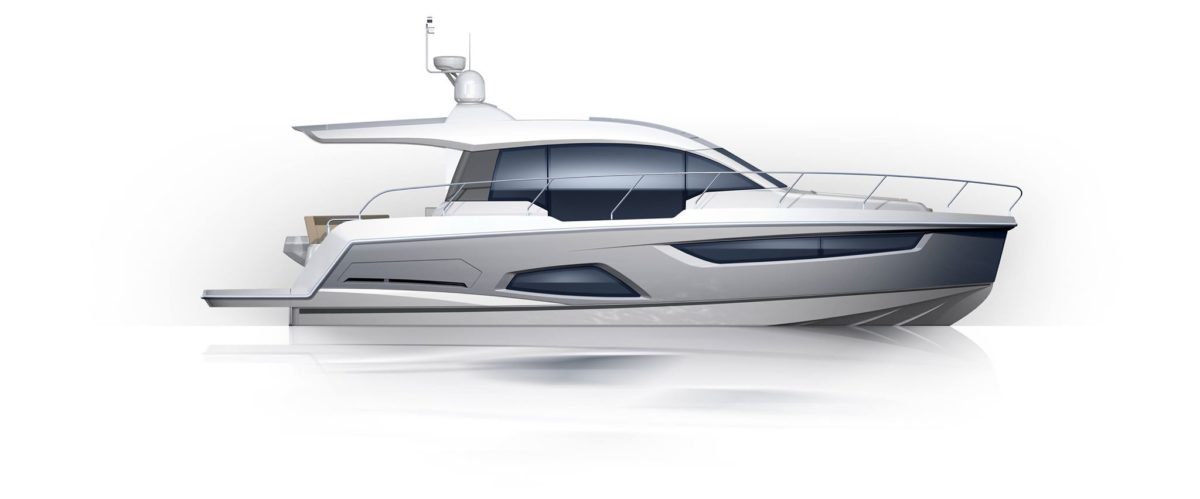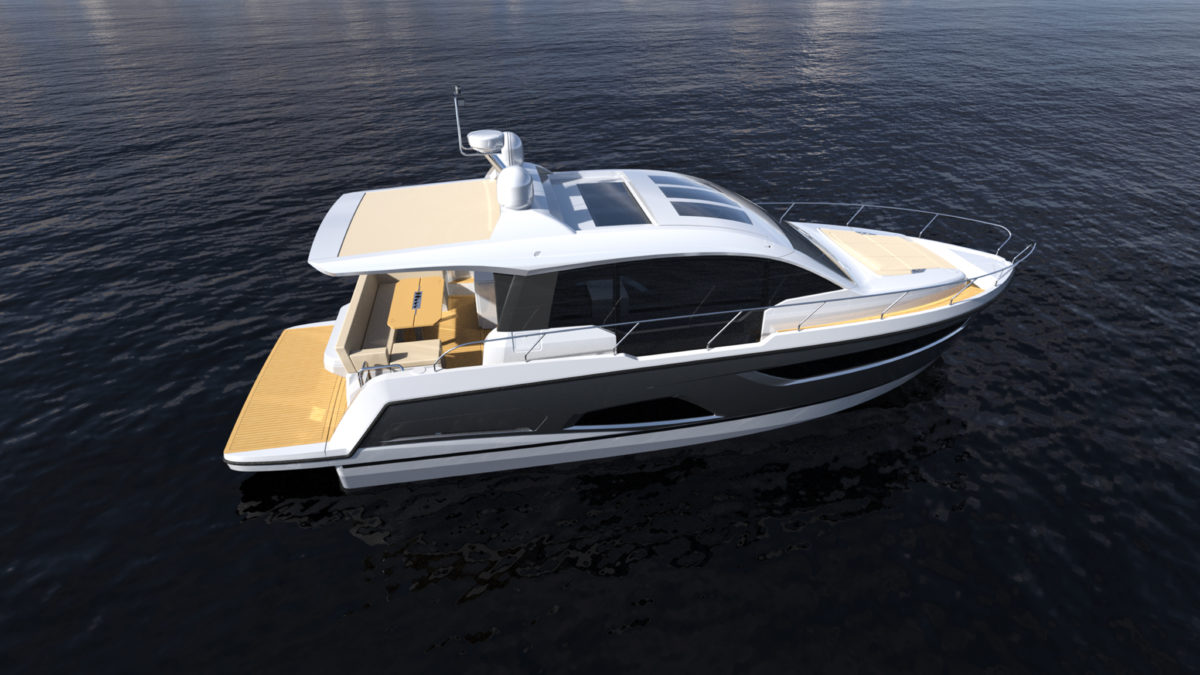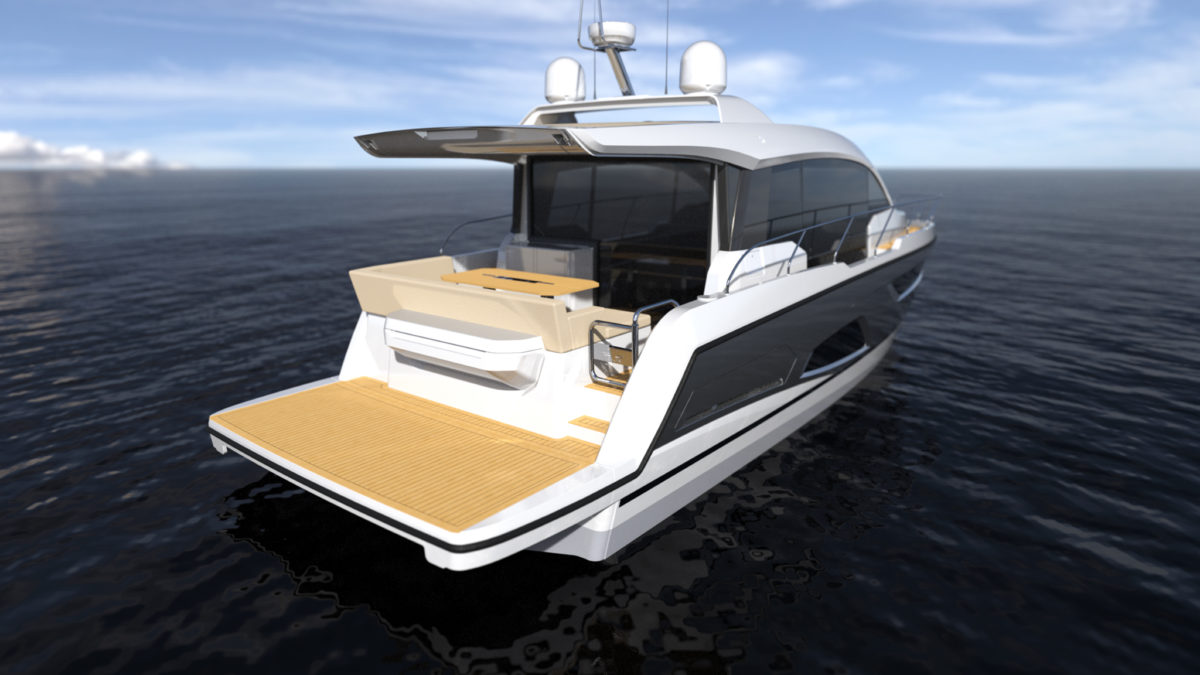3rd year student Lewis Brown has achieved a highly commended award in the annual Design Innovation in Plastics (DIP) competition.
Left to right: Steve Blanks (HellermannTyton), Gordon Haines (Master of Horners), Lewis Brown, Mark Freary (Teesside University), Bernie Rickinson (Institute of Materials, Minerals and Mining)
Lewis Brown, who studied BSc (Hons) Product Design, gained the award for his product ‘Dynamic Grip’ – a new ergonomic garden multi-tool designed to make gardening comfortable and accessible for everyone.
The product caters for people who suffer with wrist arthritis and other musculoskeletal conditions with an ergonomic handle and array of tools that eases the stress and strain from many common garden tasks.
DIP is organised by the Institute of Materials, Minerals and Mining and the Worshipful Company of Horners, and is one of the longest running student plastics design competitions in Europe. The brief this year for students was ‘Branching Out – Design for Garden Innovation.’
Students were asked to design an innovative product to be used in the garden, made primarily from plastics, that would better connect people with nature, enhance the pleasure of gardening or leisure activities within the garden, or help soothe mind and body after a long and stressful day.
Lewis attended a ceremony in London earlier this month where he was presented with the highly commended award. As part of the competition, Lewis has now been offered a placement with HellermannTyton, a leading supplier of products for fastening, fixing, identifying and protecting cables and their connecting components.
Lewis said: ‘To have got this far in the competition brings a great sense of pride and honour. Competitions like DIP are a great way of showing future employers that you have the right skills, and it helps to steer people down the best career path.
‘It has certainly made me think of my design from a new angle. It is easy to get carried away making a product look nice when realistically it could be impossible to manufacture. DIP makes you take a step back and consider a whole new range of factors.’
Mark Freary, Principal Lecturer in the School of Science, Engineering and Design, said: ‘This is a great achievement and recognises the three years of hard work by Lewis in developing his product design skills and technical knowledge.
‘This competition includes entries from postgraduate as well as undergraduate students, so Lewis has done exceptionally well in reaching the final six of such a prestigious competition. He has a great future ahead of him.’

